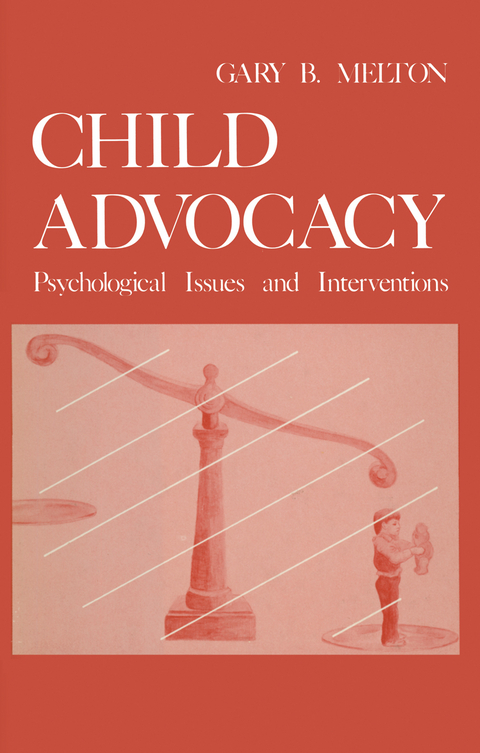
Child Advocacy
Springer-Verlag New York Inc.
978-1-4613-3589-4 (ISBN)
1 Children’s Rights: The Foundation of Child Advocacy.- What are Children’s Rights?.- Attitudes toward Children’s Rights.- Social Welfare Orientation and Child Saving.- The Social Scientist’s Role in Child Advocacy.- 2 The Consumer’s Point of View: Children’s Concepts of Their Rights.- Children’s Legal Status.- Review of the Literature and Hypotheses.- Method.- Results and Discussion.- Implications for Public Policy and Educational Practice.- 3 Human Ecology and Child Advocacy.- Support Systems.- The Quality of Life.- Ecological Assessment.- Conclusions.- 4 Social Interventions with Children.- Child Therapy.- Vocational Treatments.- Educational Treatments.- Problems of Implementation.- 5 The Nature of Advocacy.- Forms of Advocacy.- Toward Clinical Advocacy.- 6 Administrative Advocacy: Changing Bureaucracies.- The Nature of Bureaucracy.- Administrative Remedies.- Making Bureaucracy Responsive.- 7 Legislative Advocacy: Lobbying on Behalf of Children.- The Need for Lobbying.- Who Lobbies on Behalf of Children?.- Needed: Rationality and Commitment.- Tactics.- Legal Problems Connected with Lobbying.- Training and Research Needs.- 8 Legal Advocacy: Social Change and the Law.- Bringing Child Psychology to the Courtroom.- Changes Wrought by the Courts.- Conclusions.- 9 Concepts of Childhood: Implications for Child Advocacy.- Childhood in the Context of Modern Philosophy.- The Ethnology of the Child.- Conclusions: An Agenda for Advocacy.- Appendix: Children’s Rights Interview.- References.- Table of Cases.- Author Index.
| Zusatzinfo | XIV, 228 p. |
|---|---|
| Verlagsort | New York, NY |
| Sprache | englisch |
| Maße | 155 x 235 mm |
| Themenwelt | Geisteswissenschaften ► Psychologie ► Klinische Psychologie |
| Medizin / Pharmazie ► Medizinische Fachgebiete ► Psychiatrie / Psychotherapie | |
| ISBN-10 | 1-4613-3589-2 / 1461335892 |
| ISBN-13 | 978-1-4613-3589-4 / 9781461335894 |
| Zustand | Neuware |
| Haben Sie eine Frage zum Produkt? |
aus dem Bereich


